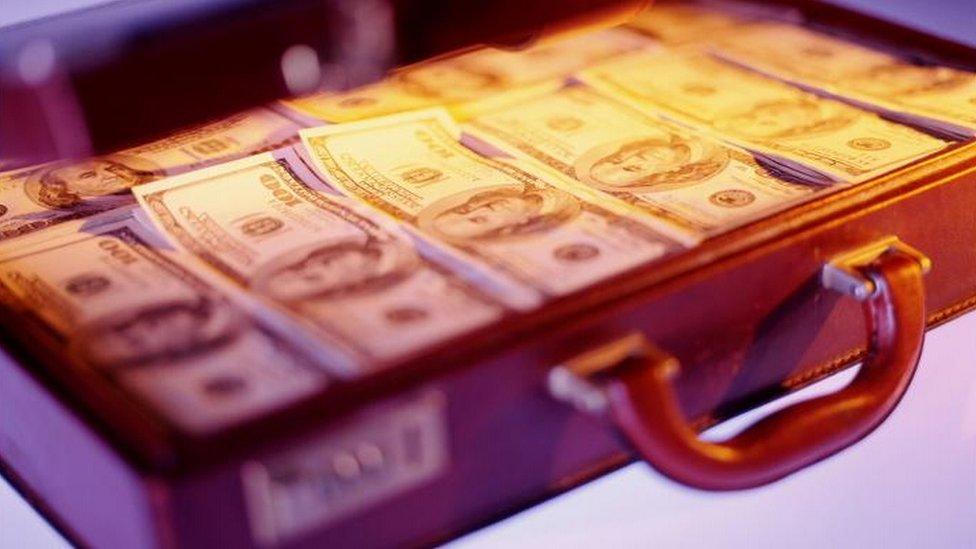Dirty money 'targeting UK prestige services'
- Published

Dirty money has spread throughout the UK economy, reaching as far as private schools and interior designers, says watchdog Transparency International.
Corrupt individuals are now channelling their ill-gotten gains through service industries that fall outside anti-money-laundering rules, it said.
This allows them to "spend their money with impunity", it added.
UK banks and luxury goods retailers are also among the institutions which have served the most corrupt, it said.
Transparency International's UK arm looked at more than 400 corruption and money-laundering cases in recent decades with links to UK companies.
Firms' involvement can be unwitting, it said.
The exact amount of tainted money seeping into the UK is hard to quantify, but the the total is more than 拢100bn a year.
Transparency International , at 拢325bn.
These funds are often from rigged procurement, bribery, embezzlement and "the unlawful acquisition of state assets", it said.
Some of the cases examined by the watchdog involved foreign politicians.
For instance, in February 2019, after a National Crime Agency investigation, a court froze the HSBC bank accounts of Luca Filat, the son of former Moldovan Prime Minister Vladimir Filat, who is serving a nine-year prison sentence for embezzlement in Moldova.
Luca Filat had paid 拢390,000 upfront to rent an apartment in Knightsbridge, an expensive area of London. He had also funded an "extravagant lifestyle" using money from companies in Turkey and the Cayman Islands, including buying a 拢200,000 Bentley from a Mayfair dealership.
Luxury goods
Transparency International researchers also analysed "suspicious payments" for high-value goods which mainly came from Russia and Azerbaijan.
These payments stemmed from so-called "laundromat" money-laundering, Transparency International alleged.
They found transactions including a "Chanel crocodile skin handbag and Tom Ford crocodile skin jacket from Harrods totalling 拢50,690" and "a shell company paying Chelsea Football Club for a corporate executive box at Stamford Bridge" costing 拢126,000.
There were 拢570m worth of these transactions between 2003 and 2017, the charity said.
The funds were paid into accounts at banks including Citibank, Royal Bank of Scotland, JP Morgan, HSBC and Barclays, Transparency International said, while noting that these banks had said they have strict anti-money laundering processes in place.
Cash from "laundromat" money-laundering also found its way to prestigious public schools, including Charterhouse and Harrow, and universities including University College London and St Andrews, the charity said.
Harrow School responded: "We never comment on matters concerning pupils, but note the report emphasises that neither we, nor any of the other institutions mentioned, are implicated in any wrongdoing."
Duncan Hames, director of policy at Transparency International UK, said: "We've known for a long time that the UK's world-class services have attracted a range of clients, including those who have money and pasts to hide.
"Now, for the first time, we have shed light on who these companies are and how they have become entangled in some of the biggest corruption scandals of our time.
"This should act as a wake-up call for government and regulators and deliver much-needed reforms to the UK's defences against dirty money."
- Published23 October 2019
- Published24 July 2019